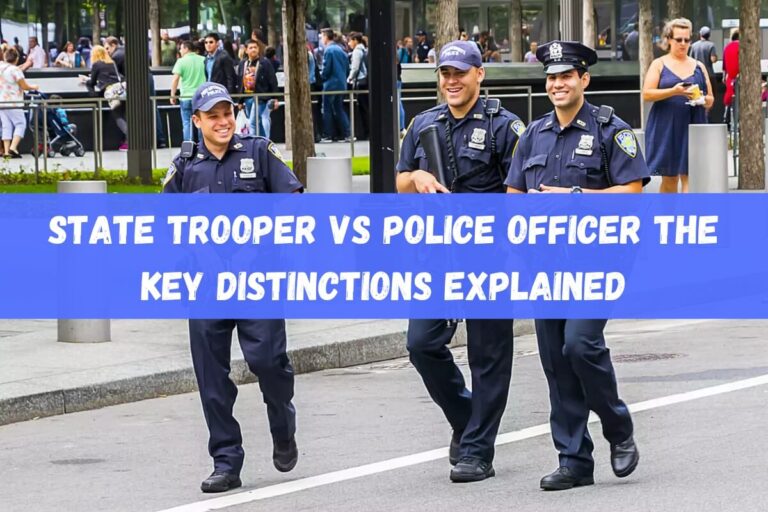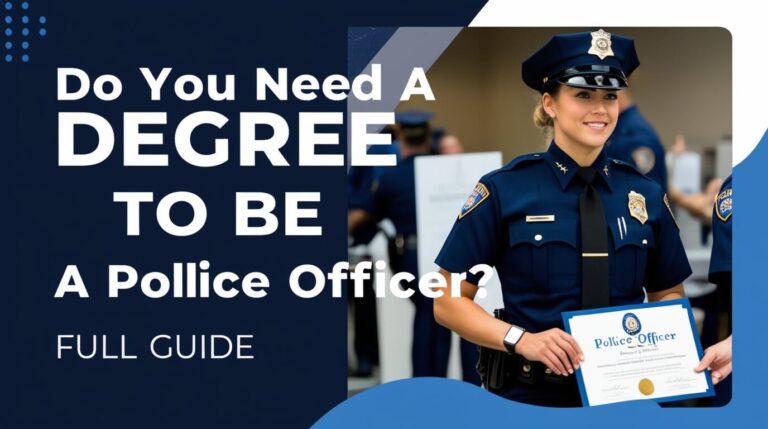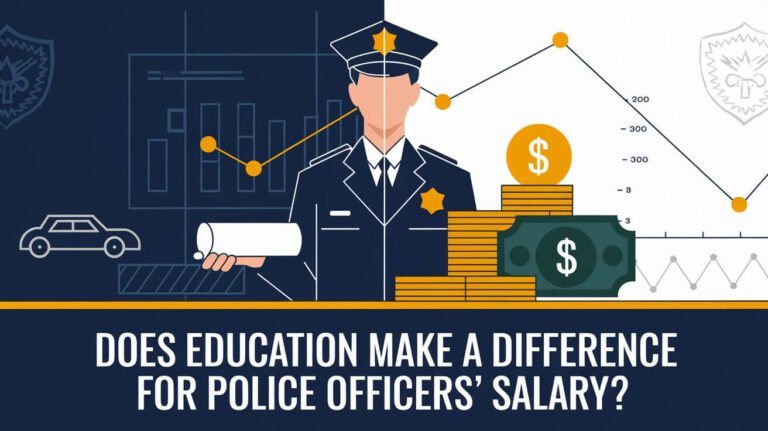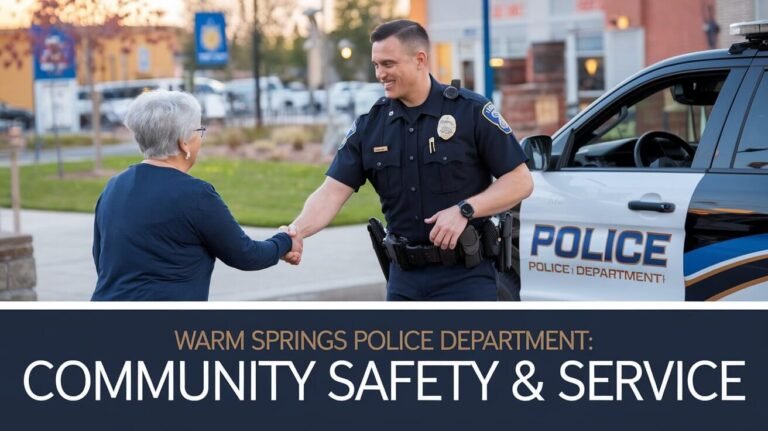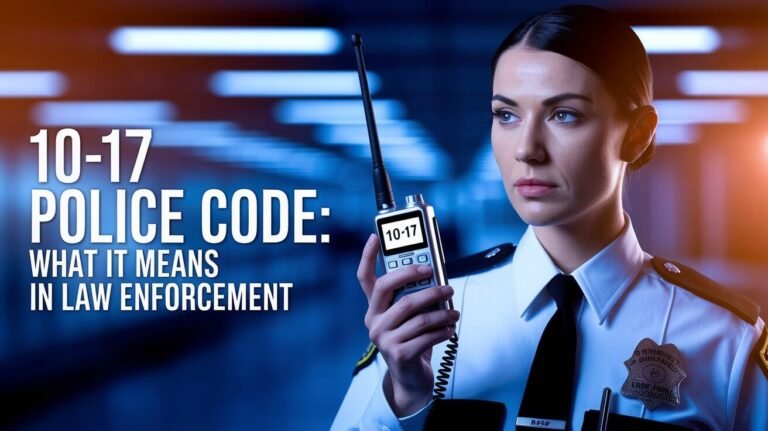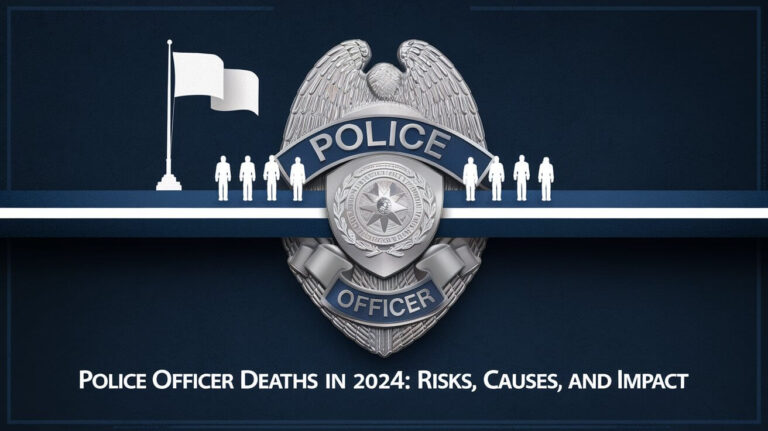What Do Police Do: Duties, Responsibilities & Community Impact
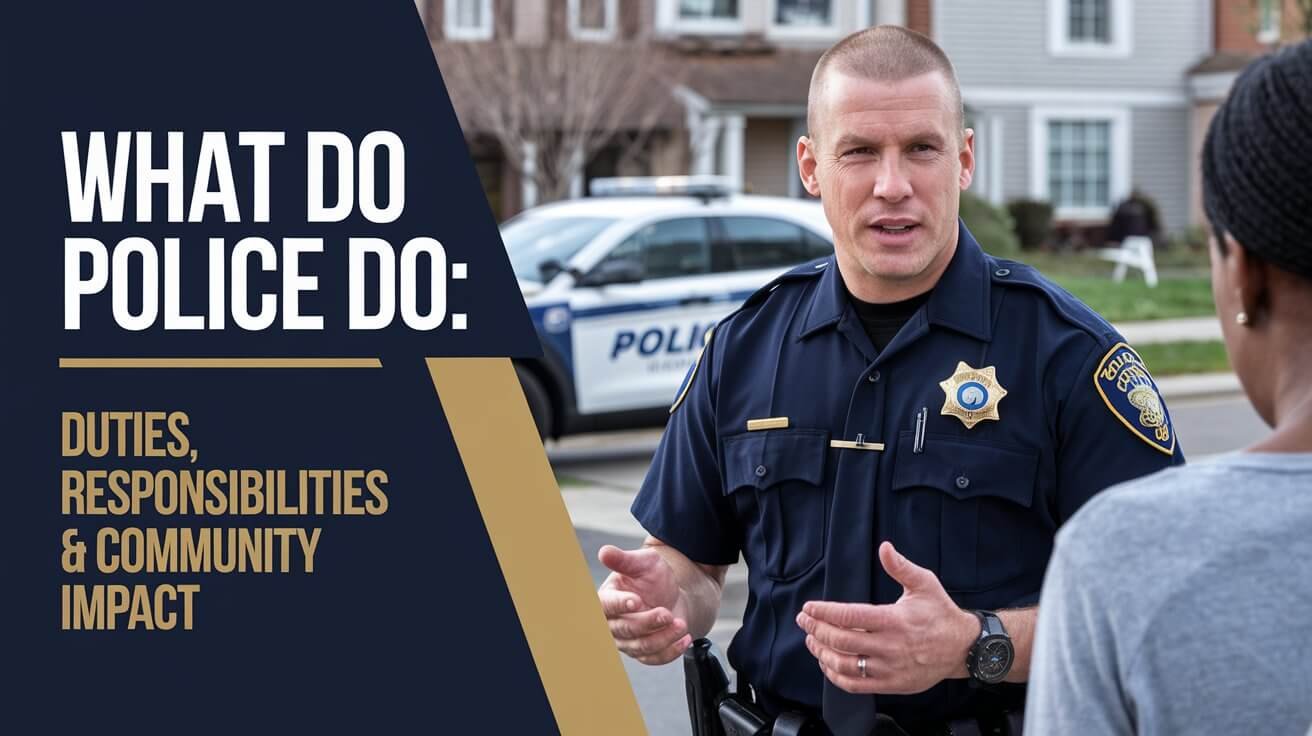
Police officers are key in keeping our communities safe. They make sure laws are followed and people are protected. But what do they do every day to help us?
Let’s explore the main tasks of law enforcement. This will help us understand their role better.
Core Responsibilities of Police Officers
Police officers are key to keeping our communities safe. They handle many tasks, from patrolling streets to responding to emergencies. They also work to prevent crimes.
Daily Patrol Activities
Police officers patrol on foot, in cars, or on bikes. They look for signs of trouble and make sure everyone follows the law. By being out there, they can stop problems before they start and act fast when emergencies happen.
Emergency Response Protocol
When emergencies strike, police officers are the first to arrive. They quickly respond to calls, help those in need, and keep the area safe. Their fast actions help lessen the damage and protect everyone.
Crime Prevention Measures
- They check businesses and homes for weak spots to fix them.
- They use community policing to connect with people and build trust.
- They teach the public about safety and how to prevent crimes.
Police officers lead the way in preventing crimes. By working with the community, they can spot and stop threats. This helps keep everyone safer.
What Do Police Do in Their Communities
Police officers are key in building strong bonds between communities and law enforcement through community policing. They talk directly with people, listen to their concerns, and work together to keep everyone safe. This way, law enforcement becomes a true partner in the community’s well-being.
They also join in on neighborhood meetings and events. Police work with schools, businesses, and community groups to stop crime and teach people about safety. This helps them understand what the community needs and find the best ways to help.
- Organizing youth outreach programs to mentor and engage young community members
- Coordinating neighborhood watch groups to enhance vigilance and communication
- Conducting public safety seminars and training sessions for residents
Through these efforts, police officers earn the trust of the community. They do more than just enforce laws. They help people feel safe and involved in keeping their neighborhoods great.
Law Enforcement and Criminal Investigations
Police officers are key in the first steps of solving crimes. They secure the crime scene, collect evidence, and talk to witnesses and suspects. These actions help build a strong case for court.
Evidence Collection Techniques
Collecting evidence right is very important. Officers must document the scene well and collect things like fingerprints and weapons. They also have to keep the evidence safe to avoid mistakes that could harm the case.
Witness Interview Procedures
Talking to witnesses is a big part of solving crimes. Officers need to ask questions carefully to get the truth. They also have to keep the identities of those who report crimes safe to protect them and the investigation.
Case Documentation Methods
Police officers keep detailed records of their work. This includes reports and recordings. These files are important for court and help prove crimes were committed. Officers must keep these records safe and ready for the prosecutor.
| Investigative Aspect | Common Errors | Potential Consequences |
|---|---|---|
| Evidence Collection | Improper packaging, lack of chain of custody, failure to document collection location | Evidence may be questioned or lost, leading to dismissal of charges |
| Witness Interviews | Failure to protect witness identities, inconsistent or incomplete statements | Witness credibility may be challenged, compromising the prosecution’s case |
| Case Documentation | Incomplete or inaccurate record keeping, improper storage or preservation of records | Crucial evidence may be unavailable or inadmissible in court |
Traffic Control and Road Safety Management
Police officers are key to keeping our roads safe. They enforce traffic laws, manage traffic flow, and investigate accidents. Their work helps keep our communities safe.
At the core of their job is traffic enforcement. They use tech like radar and lidar to check speeds and give tickets. This helps prevent dangerous driving and lowers the chance of serious crashes. They also set up sobriety checkpoints to catch drunk drivers.
| Technology | Capabilities |
|---|---|
| RADAR | Measures vehicle speeds with a divergence of up to 250 feet, allowing for targeting multiple vehicles in every lane. |
| LIDAR | Measures vehicle speeds with a narrow divergence of just 3 feet, enabling precise targeting of individual vehicles. |
| Automated Speed Detection | Affordable systems that do not require extensive training, providing a cost-effective solution for traffic enforcement. |
Police officers also investigate accidents. They gather evidence, talk to witnesses, and figure out what happened. This helps make our roads safer and holds drivers accountable.
Police officers also help manage traffic at events. They use tools like cones and hand signals to keep traffic moving. They’re ready to handle emergencies too.
Police officers work hard to make our roads safer. They enforce laws, investigate accidents, and work with the community. Their efforts help reduce accidents and injuries, making our streets safer for all.
Public Safety and Emergency Response
Police officers are key in keeping us safe and handling emergencies. They are often the first to arrive at natural disasters, accidents, and civil unrest. They use crisis intervention to lessen the impact and work with other emergency teams.
Crisis Intervention Strategies
Police officers use special training to calm situations, offer emotional support, and find the right help. They might listen actively, solve problems, or refer people to mental health experts or social workers.
Disaster Management Roles
In disasters, police help with evacuations, secure areas, and keep order. They work with the National Incident Management System (NIMS) and the Incident Command System (ICS). This ensures a well-coordinated emergency response.
First Aid and Medical Assistance
- Police officers are often the first to arrive in emergencies. They are trained in basic first aid and CPR.
- They might give life-saving help, like using tourniquets or oxygen, until medical help gets there.
- Police officers are vital in keeping the scene safe until more advanced medical care can be given.
| Emergency Response Roles | Disaster Management Responsibilities | First Aid and Medical Assistance |
|---|---|---|
| Crisis intervention strategies | Coordinating multi-agency responses | Providing basic life-saving interventions |
| Securing affected areas | Assisting with evacuations | Administering CPR and first aid |
| Maintaining public order | Securing damaged or dangerous areas | Stabilizing the scene until advanced care arrives |
Arrest Procedures and Suspect Processing
Law enforcement officers are key in the criminal justice system. They catch suspects and make sure they are processed legally. Officers must follow rules to protect the rights of the suspect and the community.
The arrest starts with probable cause. This means officers believe a crime was committed. After arrest, the suspect learns their Miranda rights. These include the right to stay silent and get an attorney.
Then, the suspect is taken to the police station. There, they are booked and processed.
- Fingerprinting and photographing the suspect for identification purposes
- Conducting a thorough search of the suspect and their possessions to seize any evidence
- Completing detailed documentation, such as arrest reports and incident reports
- Ensuring the suspect is brought before a magistrate or judge for a bail hearing or initial appearance
The processing phase is crucial for the criminal justice system’s integrity. Officers must treat arrestees with respect and professionalism. This balance is key to earning trust from the community.
| Key Aspects of Arrest Procedures | Suspect Processing Responsibilities |
|---|---|
| Probable Cause Determination Miranda Rights Advisement Suspect Apprehension and Transport Search and Seizure of Evidence Documentation and Reporting | Fingerprinting and Photographing Thorough Search and Evidence Collection Booking and Custody Records Magistrate or Judge Appearance Maintaining Suspect Safety and Security |
Specialized Police Units and Their Functions
Law enforcement agencies have specialized units for complex and risky situations. SWAT teams, K-9 units, and detective divisions are key to public safety. They handle a variety of challenges effectively.
SWAT Operations
SWAT teams are trained for critical incidents like hostage situations and barricaded suspects. They get continuous training to stay ready for these tasks. This includes rescuing hostages and making high-risk arrests.
K-9 Unit Responsibilities
K-9 units team up with trained police dogs for law enforcement duties. They track suspects, find illegal substances, and locate missing people. Each dog is seen as a dedicated officer in the unit.
Detective Division Tasks
Detectives handle in-depth investigations and gather evidence. They analyze data and build cases against criminals. Their work is vital in solving crimes and bringing justice.
Detectives often work with SWAT teams and K-9 units. This teamwork ensures successful investigations. Their skills and dedication are crucial for community safety.
Court Appearances and Legal Duties
Police officers are key in the legal system. They often go to court to give court testimony and help with legal procedures. As law enforcement reps, they present evidence, describe investigations, and help win criminal cases.
Police officers must keep detailed records of their work. This careful record-keeping makes sure their court evidence is correct and can be used. They need to know legal steps well and keep evidence safe.
In court, police officers might testify before judges or juries. Their court testimony is vital for proving case facts and helping the legal process. They must be ready to answer questions, explain details, and defend their investigation methods.
Police officers also work with prosecutors, defense lawyers, and other legal experts. This teamwork helps the criminal justice system run smoothly. It ensures justice and protects everyone’s rights.
Doing their legal duties, police officers are crucial for a fair law enforcement system. Their hard work in record-keeping, investigations, and court testimony is key to justice.
Community Engagement and Crime Prevention Programs
Law enforcement agencies across the United States are working hard to build trust with their communities. They aim to enhance public safety and prevent crime. Police officers lead Neighborhood Watch programs, conduct public education on safety, and reach out to youth to build positive relationships.
Neighborhood Watch Coordination
Police departments team up with community members to start and keep Neighborhood Watch programs going. These programs help residents stay alert and report any odd activity to the police. By working with locals, police can understand community needs better and tackle specific issues.
Public Education Initiatives
Police officers teach community members about safety and crime prevention. They give talks at schools, community centers, and local groups. Topics include personal safety, home security, and how to prepare for emergencies. These efforts help people feel empowered to keep their communities safe.
Youth Outreach Programs
Law enforcement agencies know how crucial it is to connect with the youth. They run programs like Police Athletic Leagues, mentorship, and educational workshops. These programs help build trust, inspire the next generation, and improve community well-being.
Frequently Asked Questions
What are the core responsibilities of police officers?
Police officers keep the public safe and enforce laws. They prevent and solve crimes. They also protect people and property in their area.
Officers patrol, respond to emergencies, and conduct investigations. They make arrests and issue citations. They work with other agencies and community groups to keep everyone safe.
What do police officers do during their daily patrol activities?
Police officers patrol on foot, in cars, or on bikes. They look for suspicious activities and enforce traffic laws. They also respond quickly to emergencies.
They provide aid to victims and secure the area. They check businesses and homes for safety. They teach the public about safety.
How do police officers engage with their local communities?
Police officers build trust by working with the community. They attend meetings and organize programs. They teach about safety and crime prevention.
They work with schools and businesses. This helps solve problems and keeps everyone safe.
What is the role of police officers in criminal investigations?
Police officers start investigations and collect evidence. They interview witnesses and suspects. They write reports and keep records.
They work with detectives to solve cases. They may testify in court to help prosecute criminals.
What are the responsibilities of police officers in traffic control and road safety management?
Police officers enforce traffic laws and direct traffic. They investigate accidents and help drivers. They issue citations for traffic violations.
They use radar to monitor speed. They control traffic during events or emergencies.
How do police officers respond to various emergencies and crises?
Police officers handle emergencies like natural disasters and accidents. They use crisis strategies and work with other services. They provide first aid and medical help.
They help with evacuations and secure areas. They keep the public safe during crises.
What are the procedures for arresting and processing suspects?
Police officers arrest people based on probable cause. They inform them of their rights. They process prisoners, including fingerprinting and photographing.
They transport prisoners and ensure their safety. They conduct searches and seize evidence.
What are the functions of specialized police units?
Specialized units include SWAT, K-9, and detectives. SWAT teams handle high-risk situations. K-9 units use dogs for tracking and detecting substances.
Detectives investigate crimes and build cases. They gather evidence and analyze information.
What are the legal duties of police officers in court proceedings?
Police officers testify in court and before grand juries. They present evidence and support the legal process. They must know legal procedures and document their work well.
How do police officers engage with their local communities to promote public safety?
Police officers start Neighborhood Watch programs and educate the public. They organize meetings and give presentations. They work with residents to address concerns.
These efforts build trust and promote safety. They help prevent crime and improve community relationships.

